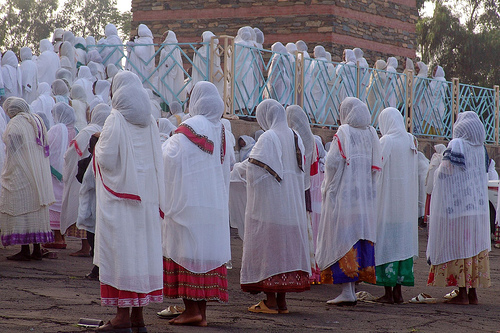
The text below is by Aaron Berhane, an award-winning journalist, and editor-in-chief and publisher of the Eritrean-Canadian newspaper Meftih. He is also one of PEN Canada’s Writers-in-Exile.
Today, May 24th, is Independence Day in Eritrea. But what do Eritreans have to celebrate, exactly? My homeland on the Horn of Africa was freed from colonization on this day in 1991, but our people now suffer under the dictatorial regime of President Issaias Afworki and the ruling People’s Front for Democracy and Justice (PFDJ).
When Eritriea gained independence from Ethiopia, I held high expectations of not repeating the same mistakes other countries had committed after similarly librating themselves. I did not believe Afworki, who played a key role in achieving our independence, would become the ruthless tormentor of his own people. I could not imagine that so many citizens would emigrate after gaining the liberation for which they had fought for thirty long years. I did not expect people to be starving after a good harvest.
By the time we greeted the seven-year anniversary of independence, I had become co-founder and editor-in-chief of Setit, the first and largest independent newspaper in Eritrea. Gravely dissatisfied with the way the country was run, I tried to pressure the government to practice various reforms; to implement the constitution; to eradicate corruption among the high-ranks of the military; to improve education and health care; and to review land and investment policies. I ran the paper under harsh conditions. Intimidation and threats were a part of life.
Finally, on September 18, 2001, the government banned the activities of all privately run print news media in the country. Several prominent public figures, including former politicians and respected war veterans, all of whom had signed an open letter calling for democratic reforms, were arrested in a series of police raids. Authorities shut down the newsrooms of seven major publications based in the capital city of Asmara, and within a week, had arrested at least ten reporters and editors.
Evading arrest under gunfire, I fled the country and eventually arrived in Canada at the end of 2002. More than eight years would pass before I would be reunited with my wife and children, who were finally able to escape the watchful eye of the regime in 2010 by crossing the Sudanese border with the assistance of a professional smuggler.
Others have not been as fortunate. More than thirty journalists are imprisoned in Eritrea today. At least ten have remained incarcerated without due process since 2001; five of them have been confirmed dead and no one knows the fate of the others.
There is no independent judiciary in Eritrea. Unions and political opposition parties have been outlawed, as have peaceful demonstrations and pubic meetings. A gathering of more than seven people is punishable by law. There are only a handful of religions allowed to practice their faith. About 40% of Eritrean children suffer from malnutrition, and 35% of the people eat one meal a day. There are more prison camps than schools. The only university in the country has been closed for years. It is a police state with a high record of torture, and mysterious disappearances are very common. For the past decade, the regime has forbid its citizens from leaving the country with a shoot-to-kill policy at the border. Nonetheless, three thousand youths flee the country every month. Eritrea accounts for more refugees than any other country in the world.
So what do we have to celebrate, exactly?
–
Image: Eritrean women praying before St. Mary’s Church in Asmara.




